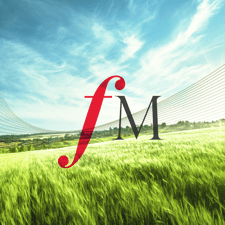What classical music is in ‘Challengers’ and who wrote the soundtrack?
1 May 2024, 17:25 | Updated: 1 May 2024, 19:28

Exploring the hedonistic soundworld of ‘Challengers’, Luda Guadagnino’s latest blockbuster starring Zendaya.
Listen to this article
Loading audio...
Luca Guadagnino’s Challengers has now landed on UK screens. Starring Mike Faist, Josh O’Connor and Zendaya as a tennis pro, would-be pro, and prodigy whose career was cut short, the exhilarating drama will leave you clutching the sides of your cinema seat.
At its heart, the film is more about dedication and drive than it is about tennis.
And alongside its star trio, the movie’s fourth ‘star’ is Atticus Ross and Trent Reznor’s imaginative original soundtrack, whose inventive and disparate elements act as Wagnerian Leitmotifs in the movie, elucidating aspects of the different characters’ personalities.
Here’s everything you need to know about the soundtrack, which includes Benjamin Britten and Henry Purcell in its line of composer credits.

Watch Zendaya in the Challengers trailer
Who wrote the music for ‘Challengers’ movie?
Challengers is the second film collaboration for the Nine Inch Nails frontmen Reznor and Ross, who previously scored Guadagnino’s Bones and All (2022).
The pair opted for two primary contrasting styles in the Challengers soundtrack. An unlikely pairing: electronic dance music and classical.
The original music in Challengers is Berlin-style techno and electronica. Intense beats evoke the soundworld of a late-night rave – completely at odds with the measured appearance of the characters on the tennis court, but perfectly aligned with their complicated off-court love triangle.
The throbbing beats seem to match the path of the tennis ball as it ricochets around the court. Reznor and Ross use electronic dance music as the musical representation of the drive which Patrick Zweig (O’Connor) has in spades, which Art Donaldson (Faist) lacks, and of which Tashi Duncan (Zendaya) has been robbed due to her injury. It comes and goes depending on which character is in focus.
In stark contrast to the driven, relentless EDM, Reznor and Ross use a compilation of British classical music in their soundtrack. The soundtrack features works by Henry Purcell and Benjamin Britten, alongside Scottish and Welsh folk music. The classical music immediately stands out and acts as a musical palate cleanser, giving moments of breathing room amid the almost-suffocating EDM.
The contrast of the acoustic classical music – all of which is vocal – with the surrounding electronic instrumental soundtrack makes it all the more striking. It’s in these moments of sharp contrast where a few key moments in the plot take place. The inherent contrast between the classical and electronic underpins and complements the entire plot of Challengers, which explores the conflict between passion and apathy.

ALISON BALSOM - Sound the Trumpet (Royal Music of Purcell & Handel)
How is classical music used in Challengers?
Warning: plot spoilers ahead
Classical music from around the UK is used to introduce key plot moments in Challengers. The film opens with Purcell’s chorus ‘Sound the Trumpet’ from the English composer’s ode Come, ye sons of art. As the choir sings, the cameras pan to a tennis match: quaint and traditional. The EDM soundtrack quickly undermines this impression.
Later, after a horrific injury seems destined to end her career, Duncan ponders her future prospects to the accompaniment of Britten’s arrangement of the Scottish folk song ‘O waly waly’, whose words ‘The water is wide, I cannot get o’er’ describe the impasse at which she finds herself.
Perhaps the most prominent use of classical music comes during the late-night encounter between Duncan and former partner Zweig, where their affair is soundtracked by Britten’s ‘A New Year Carol’ based on the Welsh folk song ‘Levy-Dew’.
This extra-marital affair is surprising and marks a turning-point in the film’s plot.
Classical music in the Challengers soundtrack is like the ‘eye’ of an otherwise EDM ‘storm’. It can’t be a coincidence that this scene literally takes place in a storm, and that Reznor and Ross chose this particular piece by Britten, with lyrics emphasising the fresh opportunities offered by the new year, to accompany such a momentous renewal of an old relationship.






















